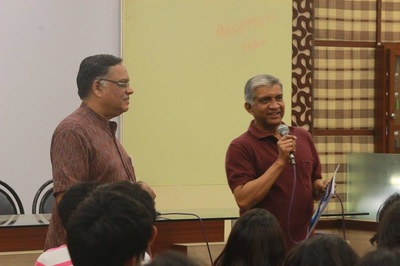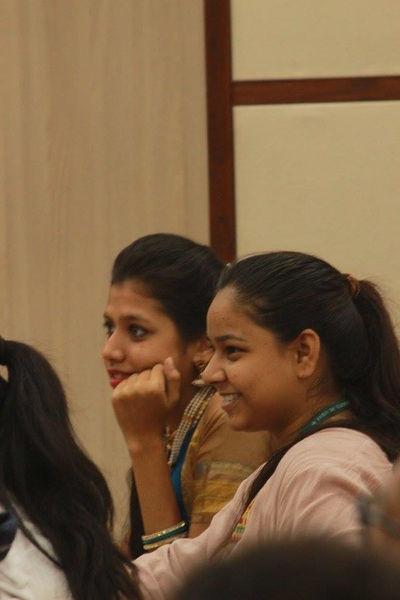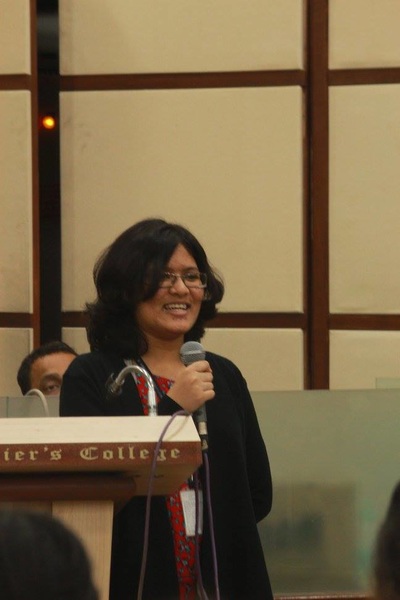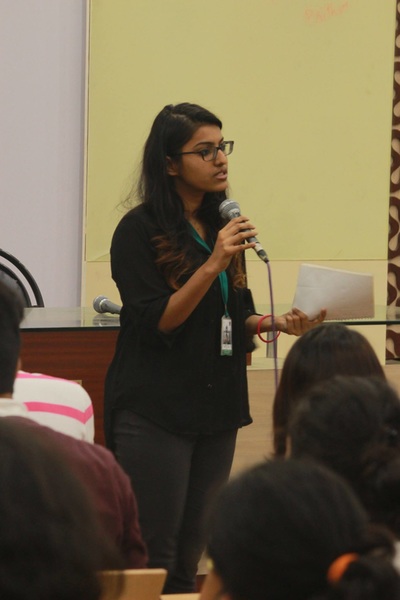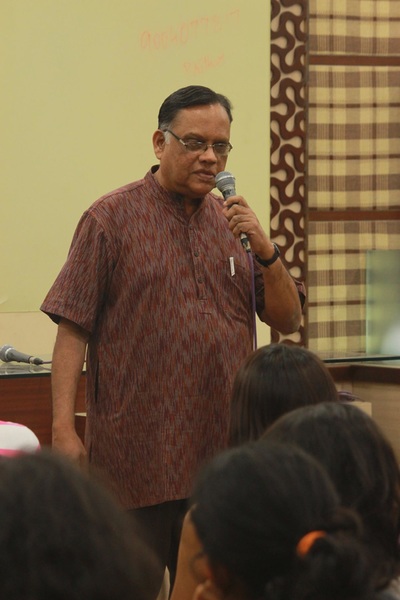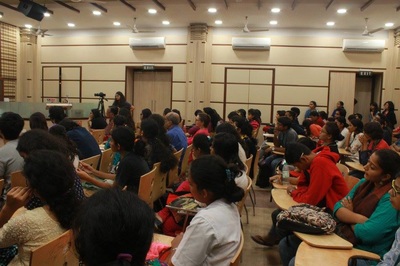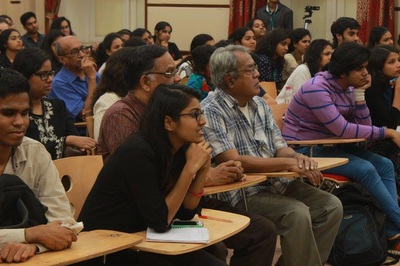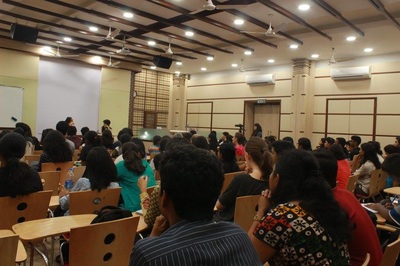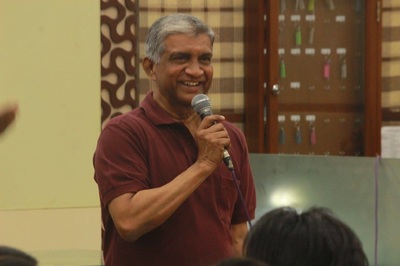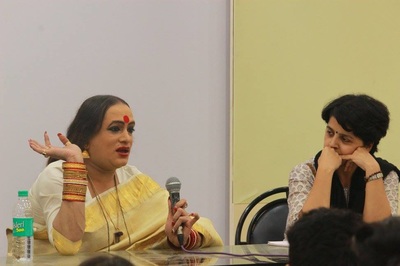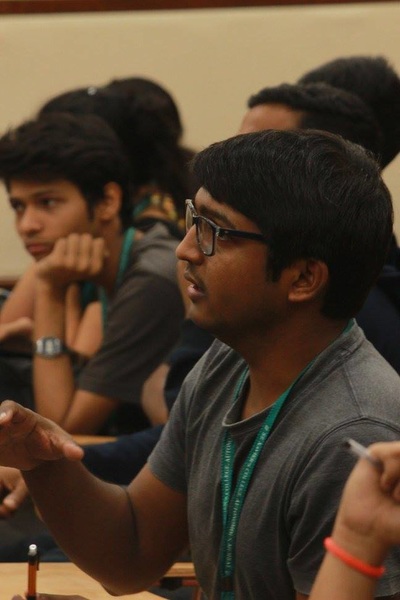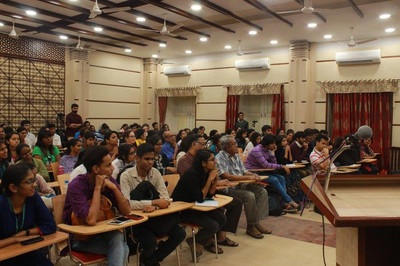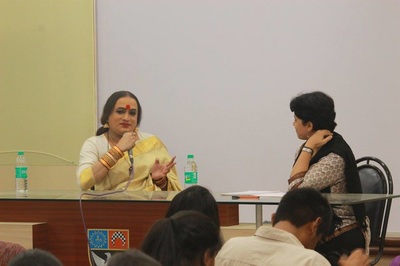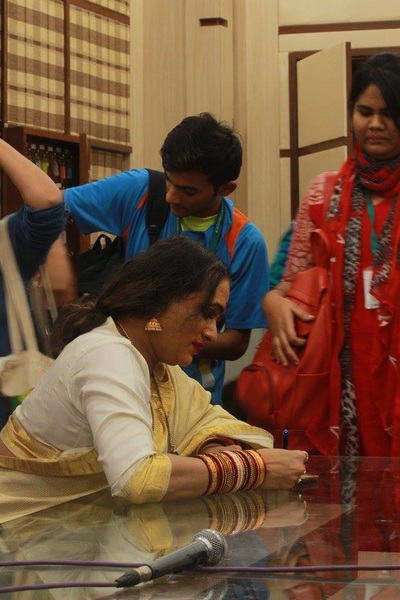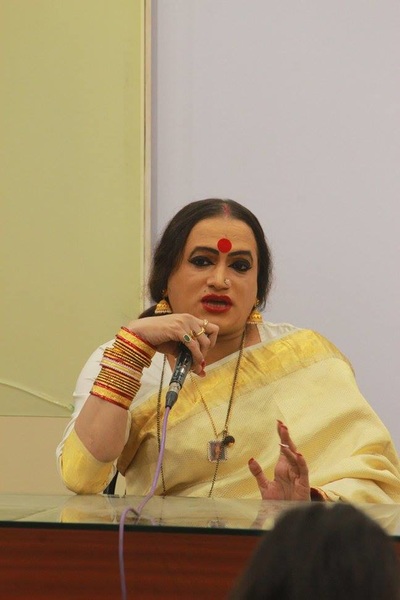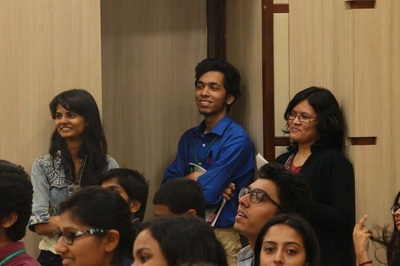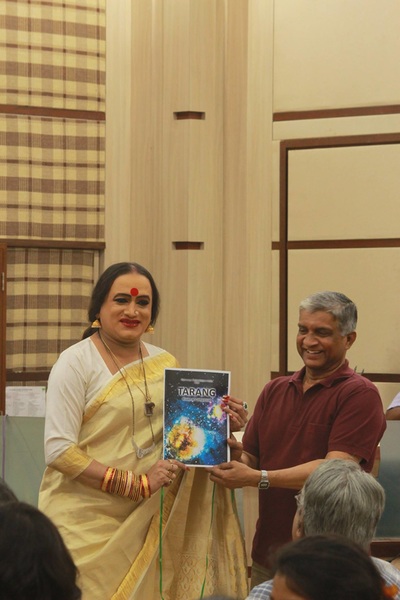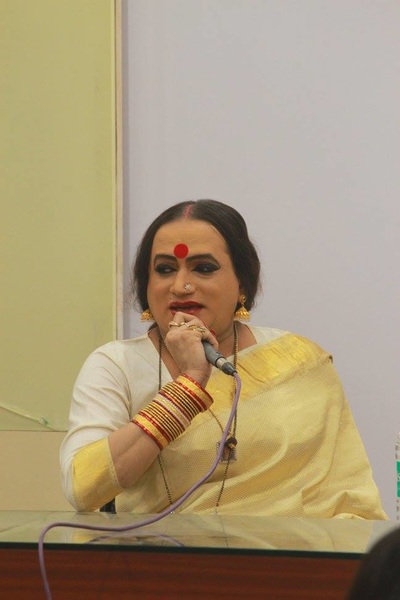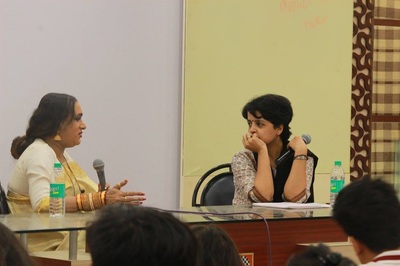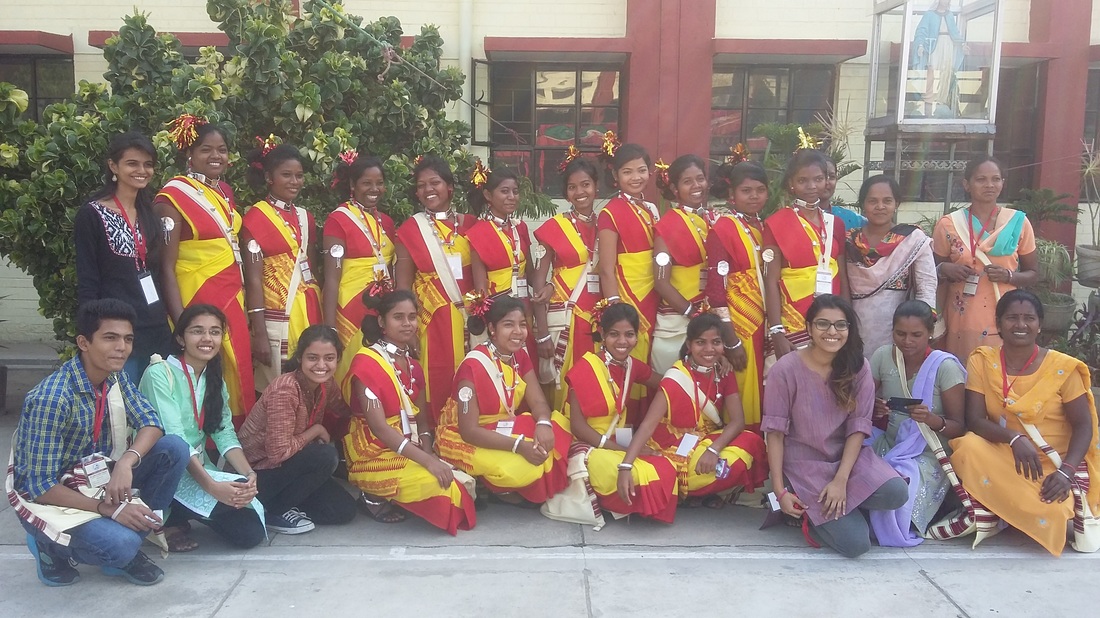Menu
from team dirs
|
How is laughter related to religion which is usually serious stuff? Religion as identity easily becomes a barrier. Laughter, much like music and dance, overcomes this barrier and bridges the gap created by ‘otherness’.
The DIRS had the pleasure of organizing a Laughter Yoga workshop on Tuesday, 23 August from 2.30 to 3.30 pm in the gymnasium. Mr. Modi and his team of senior youngsters of the Laughter Yoga Club, Juhu communicated the childlike joy and natural energy of Laughter to our students who were extremely stressed out by a flurry of activities, lectures, projects, exams, etc. We discovered how to laugh away our stress. Laughter is such a lively and lovely “out of the box” way of inter-religious dialogue. If we can laugh together, whatever religion we belong to, we can live together!
24 Comments
Laxmi Narayan Tripathi, the noted transgender activist, had the Xavier's staff and students enthralled for more than two hour with her lively stories and unique insights on Religions: Liberating or Oppressive for LGBT? Her liberal interpretation of the scriptures of various faiths is a challenge to religious leaders and believers to widen their limited horizons and become more inclusive in the spirit of their founders.
While some were not so comfortable with her atypical style and controversial remarks, which ranged from the personal to the political, quite a few were touched by her frank and fearless sharing at a time when respectable people dare not speak out. Prof. Ms Pranoti Chirmuley skilfully facilitated the session held on 15 February 2016 at the MMR from 2 to 4 pm. After Labdhi Vora performed a brief dance meditation, Dr. Agnelo Menezes, the Principal, inaugurated the first DIRS magazine, edited by Susanne Rodrigues. Riya Sawant proposed the vote of thanks. This novel programme was an apt culmination to the various "out of the box" activities organised by the Department of Interreligious Studies (DIRS) of St. Xavier's College during the academic year. Our visit to Ranchi in October 2015 Our shared experience led me to realize that the consequences of the havoc unleashed by Climate Change needn't be restricted to the physical environment but is exemplified by the misery of people's lives. In our case, these are the indigenous races, the owners of the land, who for centuries have been living in harmony with the land. But due to vested interests, this land has been torn apart from these people making them employees employed on their own property. Due to alienation that has arisen because of this injustice, there has been a breakdown of culture and traditions that promoted simple sustainable living that we all need to adopt to reduce the ill-effects of materialistic greed-filled living that has caused irreparable damage to the environment as well as to the quality of our own lives.
Observations made by the adivasis at the annual Jesuit National Tribal Festival (JEMAI) held at Ranchi from 23-26 October 2015 also brought attention to the disappearance of medical herbs and homemade remedies due to fast disappearing forest cover. Another contributing factor is the race to shift to modernistic living that is dependent on health care that has been highly commercialized. Another point that came up was the emergence of diseases that weren't prevalent before. "A solid foundation starts from the deepest roots, Educating my people is what I choose." Adivasi youth, due to ambitions created by a now highly prevalent profit-oriented capitalistic mind-set, have shown tendencies of shying away from their own culture. Thus awareness needs to be started to go back to our roots. We also saw from close quarters the harsh reality of coal mining. The harm caused far outweighs the benefits. The injustice caused is startling. The profit, energy, electricity reaches the privileged while the health issues, the loss of land, the loss of culture, the injustice is faced by the indigenous. My question is whether development as it is practiced today, is a method to rob the poor to make the rich, richer? Though the consequences are largely faced by the poor, it is a vicious cycle that will affect the world as a whole, as we are interconnected and interdependent. I would like to end with an insight of Matthew Cobb, a Native American Indian who accompanied us for this festival. He says that if we take out the apostrophe from “people's” we can bring awareness that the land and the environment isn't owned by anyone but the trees, and all of nature are peoples in themselves. Each one of us also has a drum in our own hearts that connects us with all those living on this planet as a uniting beat for change. If we consider the environment as a people in itself, we won't harm it as we will be harming ourselves. Thus we need to consider each step we take as a step taken on sacred land. A concluding observation: The medium of dance signifies a unique whole wherein everyone joins hands and dances in celebration of culture and tradition. No matter whether you're an Adivasi or not, you get into the spirit of the motion and dance regardless of whether the timing of the steps is right. This could be used as a powerful analogy for all of us to unite together against Climate Change. -Deanne Fernandes 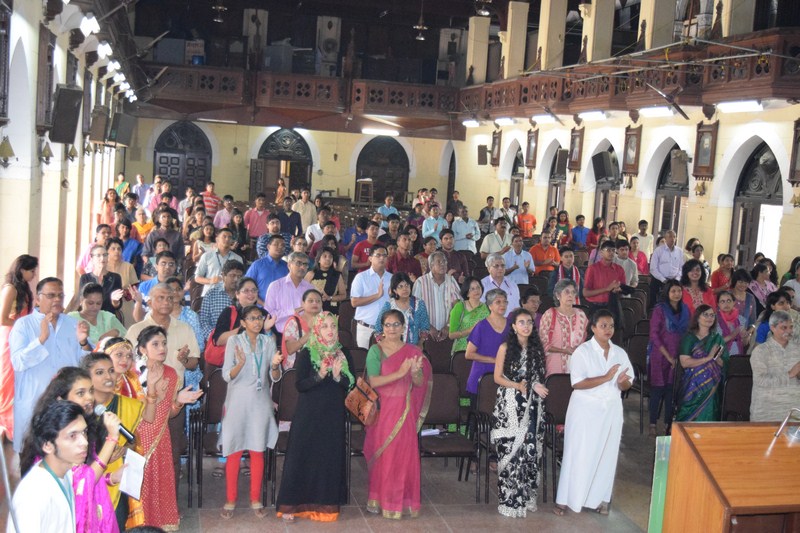 Participants singing "Sing for the Climate" at the InterFaith Prayer Service, Dec. 3, 2015. Source: www.xaviers.edu Participants singing "Sing for the Climate" at the InterFaith Prayer Service, Dec. 3, 2015. Source: www.xaviers.edu INTERFAITH PRAYER SERVICE: BE THE VOICE OF MOTHER EARTH Every year, the 3rd of December marks the feast of St. Francis Xavier. On this day, Xavierites assemble in their Indian traditional raiment for Mass in the morning and DJ, later in the day. This year, the tradition was broken -- instead of having a Mass, an InterFaith Prayer Service was organized at St. Xavier's College, led by Fr. Prashant Olalekar and his team. Both Fr. Prashant, who gave a brief background to the theme: Be The Voice of Mother Earth, as well as Fr. Tony J. D’Souza, the rector, challenged us to explore new frontiers following in the footsteps of Xavier and the contemporary Jesuit mission. The intercessory prayers on the burning issues of communal harmony and climate change, both new frontiers, were led by Gulshan Shaikh. The hall was enthralled by the evocative ‘Heal the World’ sung by Frs. Terry and Roy and an enchanting fusion Indian dance on climate change by Labdhi and Anoushka. The provocative song ‘BOL’ by Sonam Kalra and the Sufi Gospel Project, encouraged us to speak out on issues at a time when prophetic voices are being silenced. Susanne Rodrigues shared her heart-rending experience of the visit to the coal mines at Ranchi as part of the National Jesuit Tribal festival. This raised questions about India's insistence at the Paris talks on continuing with use of coal for energy. ‘Prayers for Creation' -- prayers from various faith traditions were read out during the Prayer Service. The AICUF choir created a devotional mood of interfaith harmony and peace by singing 'Be Faithful'. Anoushka Dutta, the compere, enthused the crowd and got all of us moving together to “Sing for the Climate". This new venture was highly appreciated by those staff and students who actively participated in it. What do you think about this initiative? Let us know in the comments box below. |
Categories
All
Archives |
